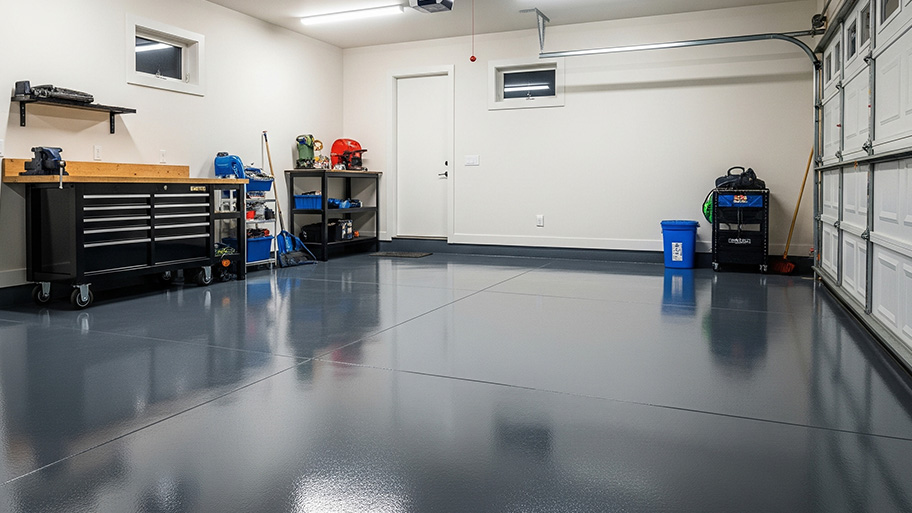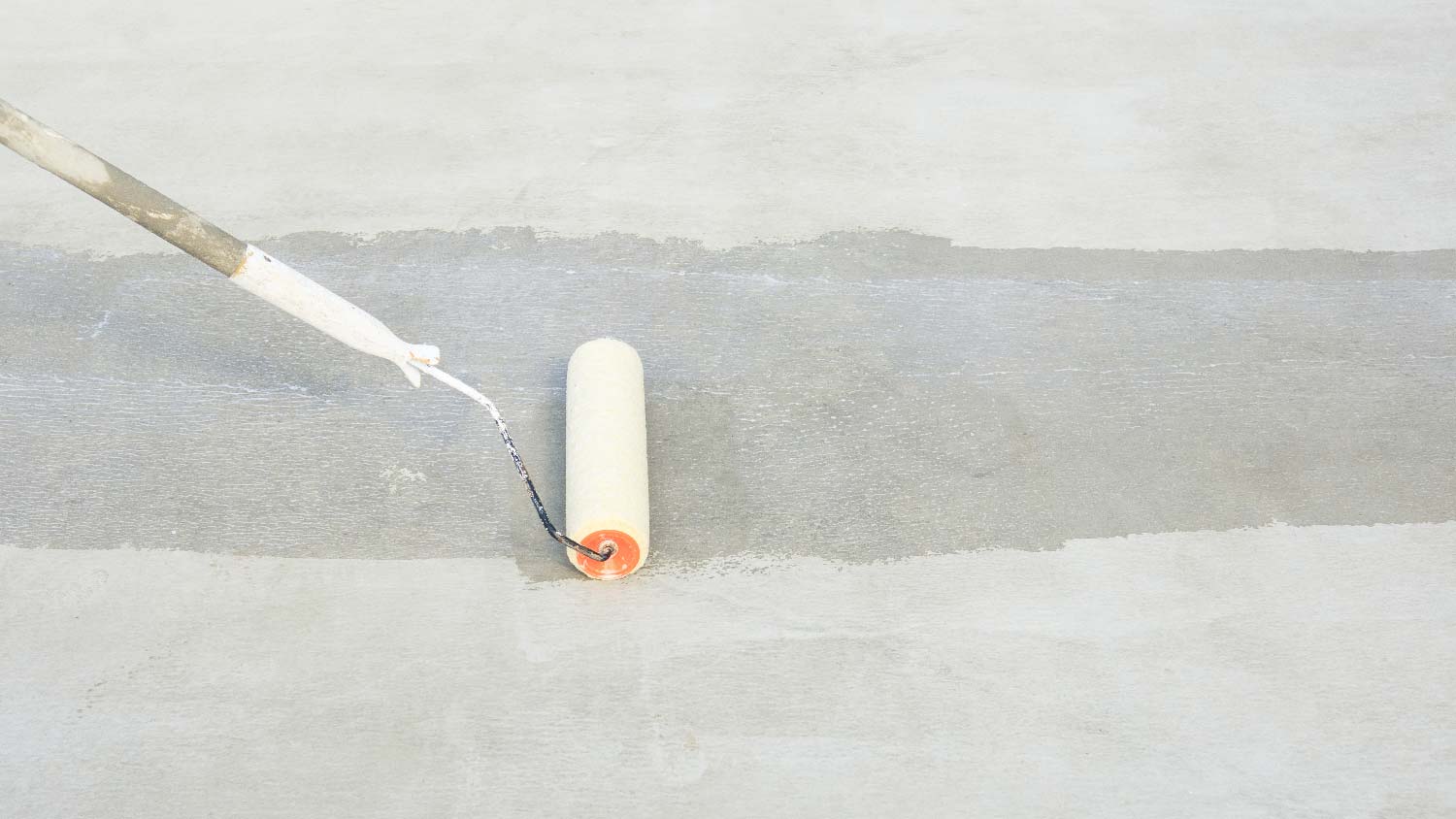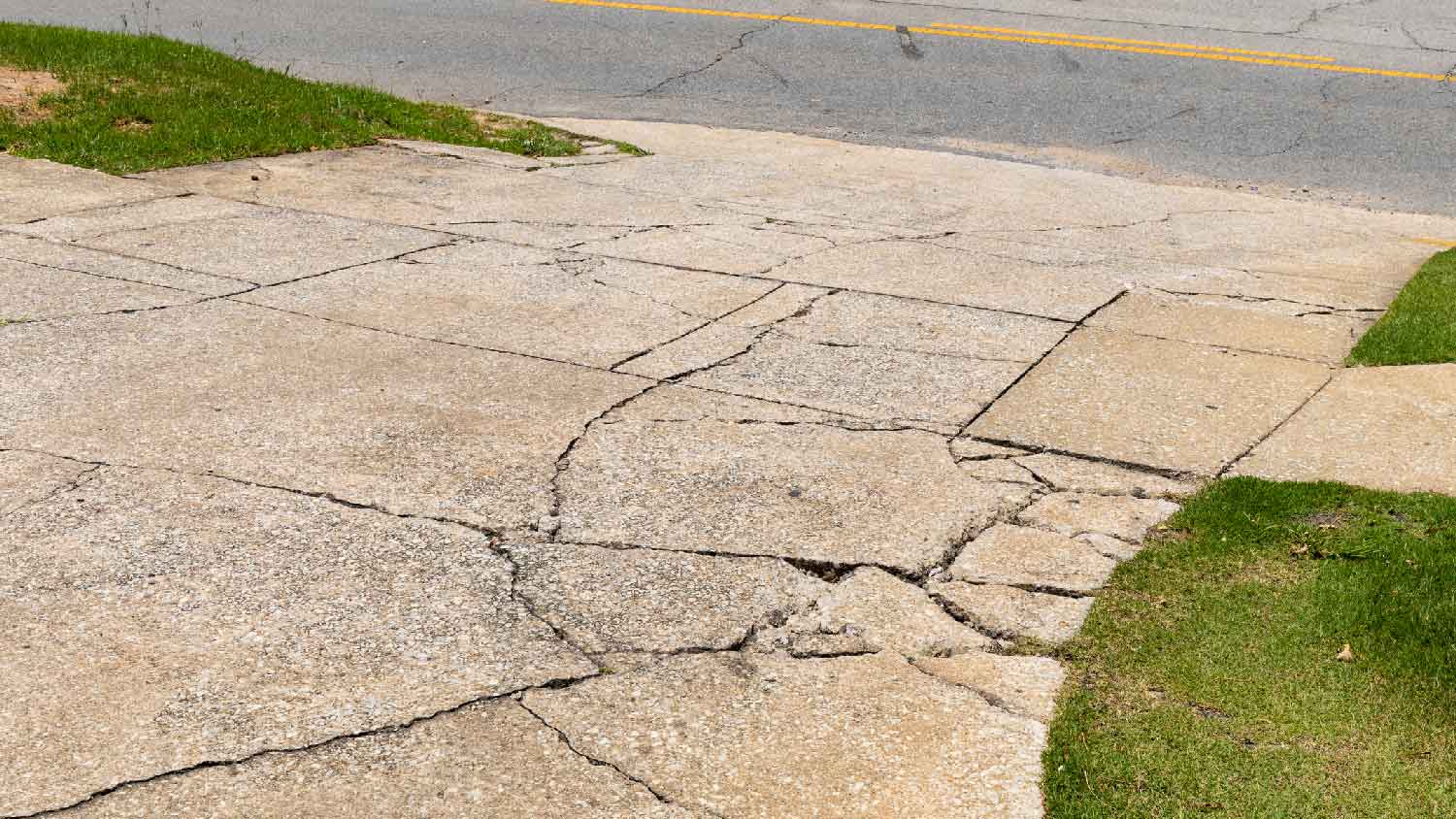
This guide breaks down the cost of installing epoxy flooring in your garage, basement, or other space. Costs depend on resin type, floor size, and more.
Not every concrete sealer is cut from the same cloth


Concrete sealers, which may be water or solvent-based, are designed to protect your concrete from water damage, oil stains, UV rays, abrasion, and other elements. Once you apply a sealer, you may wonder how long it lasts. The answer depends on a number of factors, including the type of sealer you use. Let’s dive deeper into how long concrete sealer lasts and how you can extend its life span.
There are a number of concrete sealers with varying lifespans. Some of the most common include:
Silicate concrete sealers are the most durable. They ignite a chemical reaction in the concrete and develop a structure of calcium silicate hydrate, which seeps deep into the pores. The sealer can only be removed once you remove the concrete.
Silane siloxane sealers are water-repellent and last anywhere from six months to 10 years. Those made with recycled resins have a shorter life span, whereas silane siloxane sealers with non-recycled resins last much longer. These sealers are excellent for garage floors—call your local garage floor contractor if you want a quote.
Similar to silane siloxane water repellent sealers, the life span of siliconate sealers varies greatly and may range from 6 months to 7 years. You’ll find that low-solids options at your local home improvement store don’t last as long as higher-solids solutions.
Acrylic concrete sealers come in water-based and solvent-based formulas with pieces of acrylic.
Acrylic sealers have a life span of 1 to 3 years. After that, you’ll need to re-coat them so they can do their job.
Compared to other sealers, epoxy coatings, which develop a protective film on the concrete and excel at repelling water, have a longer life span ranging from five to 10 years. They are more expensive than other options but may be worth the extra investment due to their impressive durability.
Urethane coatings are a lot like epoxy coatings but a bit thinner and known to offer better resistance to chemicals. These coatings also last between five to 10 years before they need to be re-coated.
You should seal concrete every one to five years depending on the external conditions and level of wear and tear. A masonry contractor can advise on how often your surface will need resealing.

In addition to the type of concrete sealer you use, these factors will impact how long it lasts.
The time you apply the concrete sealer is crucial. It will likely last longer if you apply it in the late afternoon or early evening. Applying sealer in the morning or during the middle of the day can lead to issues with dew and heat.
Not all concrete sealers are created equal. Some products are simply higher in quality and more durable than others. It’s a good idea to read online reviews to gauge the quality of a sealer you plan to buy.
Concrete sealer often requires two coats. While the first coat soaks up on the surface, the second coat is intended to bond the first coat and offer superior protection. If you only apply one coat and the sealer calls for two, you can expect a shorter lifespan.
Problems with the substrate, such as old sealer, moisture, and deterioration, can reduce the life span of a concrete sealer. While porous substrates need more sealer, dense substrates are better with less.
The way you prepare the surface of the concrete is essential. To maximize the sealer's life span, ensure the surface is clean and dry. Don't skip this step if the manufacturer suggests you grind the concrete.

Here are some telltale signs your concrete sealer is past its prime and warrants a replacement:
Minor Cracks: If you notice small cracks on your concrete, you may need to re-seal it. Otherwise, these cracks can eventually cause serious issues.
Fading: Not only does a fading sealer take away from the aesthetics of your concrete—it means that the concrete has been increasingly exposed to damage. In this situation, a new sealer is likely a good idea.
Uneven Surfaces: Uneven surfaces or settling in your concrete may mean there’s a structural issue. Sometimes, re-sealing can improve its durability.
Persistent Stains: While spills and stains are bound to occur on concrete, persistent stains may indicate the sealant is no longer working. If you re-seal the concrete, you can protect its functionality and enhance its appearance.
Fortunately, there are steps you can take to ensure your concrete sealer lasts as long as possible, such as:
Don’t Rush: When you seal your concrete, take your time. By paying attention to the details and being thorough during the process, you can enjoy a longer-lasting sealer.
Clean First: Before applying the sealer, clean the concrete surface to ensure it’s in tip-top shape. This will improve the sealer’s performance.
Apply Two Coats: Unless the manufacturer tells you otherwise, apply two coats of the sealer. One coat may not be enough for it to be effective.
Hire a Pro: Don’t be afraid to consult a professional to seal your concrete. They can inform you of the right sealer for your unique situation and use advanced techniques to extend its life span.
From average costs to expert advice, get all the answers you need to get your job done.

This guide breaks down the cost of installing epoxy flooring in your garage, basement, or other space. Costs depend on resin type, floor size, and more.

Garage floor replacement costs $2,200 on average but can vary depending on several factors. Review our guide for a more accurate estimate.

Sealing concrete floors, patios, walkways, and driveways can keep them looking fresh for far longer. Let's break down the cost to seal concrete with a pro or on your own.

Will your space thrive with epoxy floors? Make sure the room's purpose and your budget align with the pros and cons of epoxy flooring.

Sealing your concrete helps it last longer—and look better. Learn how to seal concrete yourself to save money and keep it looking and performing like new.

Whether you’re installing an epoxy floor or epoxy countertop, this calculator will help you determine how much epoxy you need to complete your project.